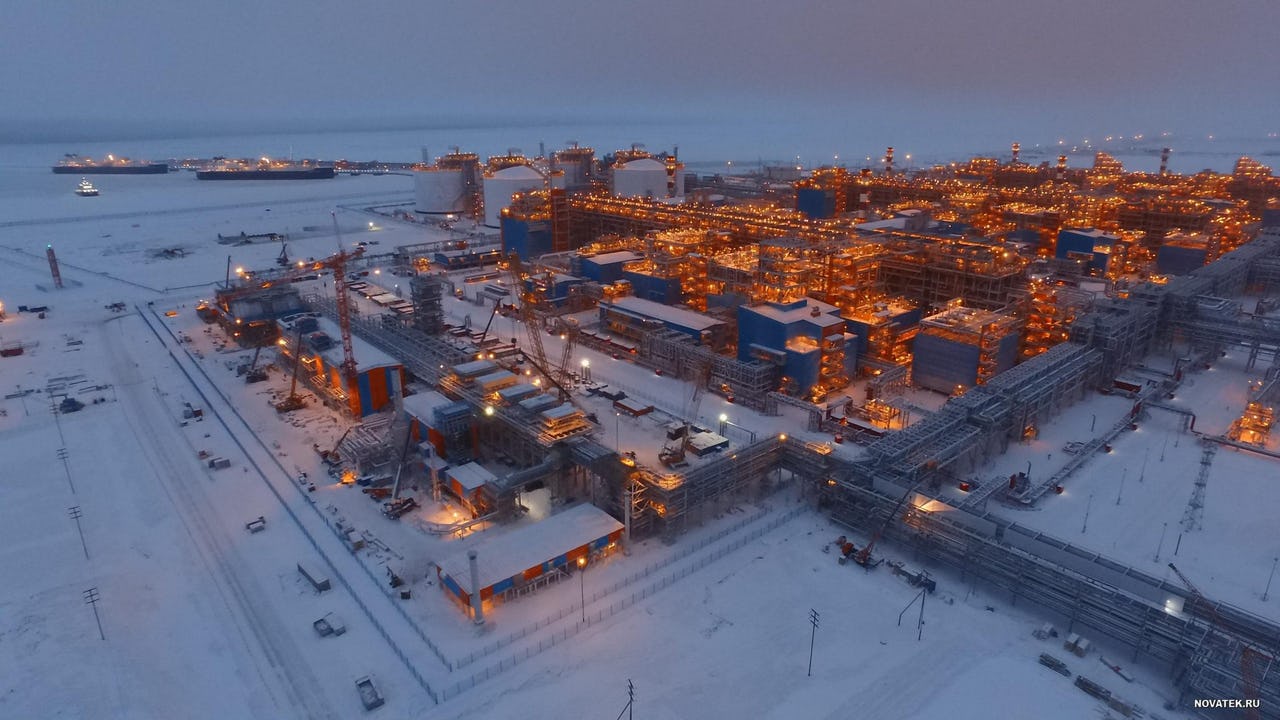Never too late: Russian Hydrocarbon Development in the Arctic

Novatek’s Yamal LNG facility in Sabetta, northern Russia. Photo: Novatek
Russia is desperately trying to catch up on lost time: the Russian government is introducing a number of new legislative acts in order to stimulate hydrocarbon development in the Arctic, and more acts are still coming down the pipe. One of them commands particular attention as the Russian Ministry for the Development of the Far East and Arctic tries to replicate the Norwegian hydrocarbon development model.
In light of the plummeting oil prices amid a price war between members of the Organization of the Petroleum Exporting Countries (OPEC+) and high oil-exporting non-OPEC nations like Russia, and the decline in consumer demand for hydrocarbons caused by the coronavirus pandemic, the question now stands as to whether the auspicious environment that the Russian government has been carefully creating for private investors in the Arctic will be enough. From a strategic point of view, Russia is on the right track as it ensures the security of supply long-term and acts in accordance with its own energy strategy up until 2035, which states that Russia’s priority lies in ensuring energy security. This is of great importance to Russia, whose hydrocarbon revenues constitute the lion’s share of its federal budget revenue (around 50%).
Furthermore, as the output of traditional oil fields in Western Siberia is declining, it is all the more important for Russia to replenish its resource base – and Arctic hydrocarbon projects offer exactly this. In 2017, for instance, around 18% of Russian oil came from the Arctic and this number is set to increase. However, as the production costs in the Arctic fields are estimated to be at least $50 per barrel, current market conditions render Arctic hydrocarbon development unattractive to private investors. As a result, petroleum companies have already started to withdraw from Russian Arctic projects. Recently, Shell pulled out from a joint venture deal with Gazprom as a result of slashing its investment plans.
Having private investors would definitely help share the heavy economic burden of developing Arctic petroleum resources, but with Western sanctions still in place, Russia is showing its willingness to pursue such developments, with or without foreign partners (e.g. Gazprom announced that it will carry on with major investment projects).
To make the task of hydrocarbon development in the Russian Arctic easier, it is imperative that investors are provided with additional incentives. Russian-law makers have understood this. In recent years, they have been creating a string of laws to ease regulations and create financial subsidies to attract more investors to the Arctic.
For instance, the State Duma is currently reviewing a law that includes the creation of a state-owned corporation, Rosshelf, which will oversee hydrocarbon development in the Russian Arctic. The law presumes that private companies will develop hydrocarbon resources in consortium with Rosshelf through production-sharing agreements (PSA), whereby the state-owned entity will have 25.1% in a project and the remaining 79.4% will go to private investors. This law implies that the opening of the Arctic shelf to private investors will cause Rosneft and Gazprom to lose their upper hand in the Arctic, as under the current law, only these two players have the right to pursue hydrocarbon development projects on the Russian Arctic shelf. At the core, the Russian law-makers drew inspiration from the Norwegian model of shelf development. While the Norwegian shelf opened up to private investors some 50 years ago, the liberalisation of access to the Russian shelf is happening with a considerable delay. Thus, it seems that Russia is sticking to the old saying, “better late, than never” when it comes to hydrocarbon development in the Arctic.
Another measure aimed at attracting interest to hydrocarbon projects in the Russian Arctic was a package of fiscal amendments approved by the government early in February. The measures include: a five percent and one percent severance tax rate on oil and gas extraction on the Russian shelf respectively, over a period of 15 years; no severance tax on liquified natural gas (LNG) and gas processing projects on the Russian continent for a period of 12 years, and an introduction of severance taxes only after 17 years of LNG production. These tax breaks apply for new oil fields located in the northern part of the Sea of Okhotsk, the southern part of the Barents Sea, the Pechora and White Seas, and whose hydrocarbon production starts after 2020. Even though these measures provide a nice fiscal stimulus for hydrocarbon development in the Arctic, many argue that they simply will not be enough: while oil fields in Western Siberia benefit from infrastructure built in the Soviet era, those in the Arctic suffer from lack thereof.
It remains to be seen just how helpful the aforementioned measures will be for hydrocarbon development in the Russian Arctic – despite a greatly reduced tax burden, rapid growth in hydrocarbon production on the Russian shelf would be unexpected, although the oil and gas industry will benefit as a whole. A long-overdue opening up of the Russian shelf to private investors should help hydrocarbon development in the Russian Arctic – however, now, it seems, foreign investors will try to avoid expensive Arctic oil at all costs as the Oil Majors are bracing themselves for a major recession and tightening the purse strings. After all, in light of the current market conditions, it is highly likely that Russian oil giants will come knocking on the ministries’ doors asking for more fiscal incentives. Given Russia’s focus on the Arctic, it is just as likely that they will be given. But, an important question still remains: is it too late to start hydrocarbon development in the Russian Arctic?
Maria Polovtseva is an international oil and gas business master’s candidate at the Moscow State Institute of International Relations (MGIMO).